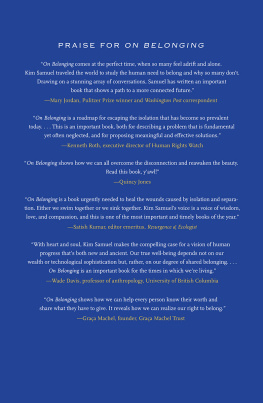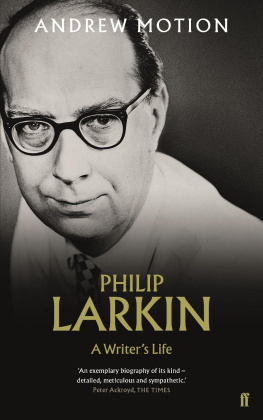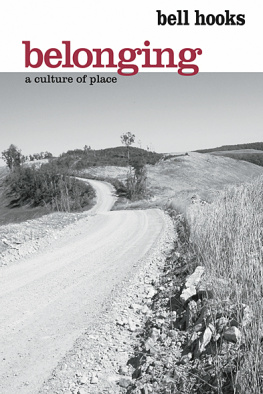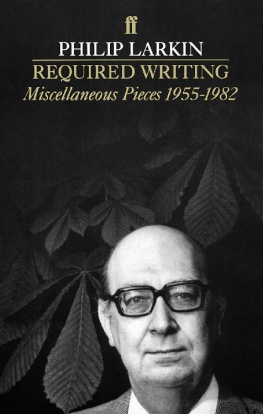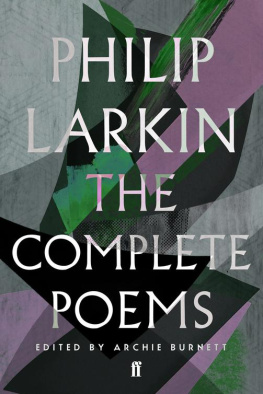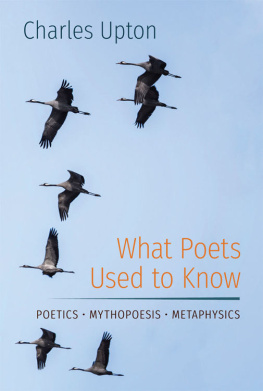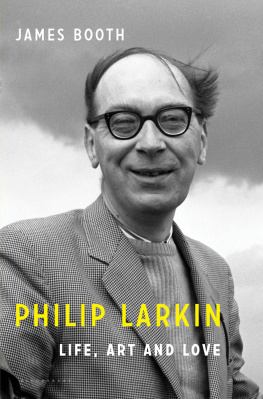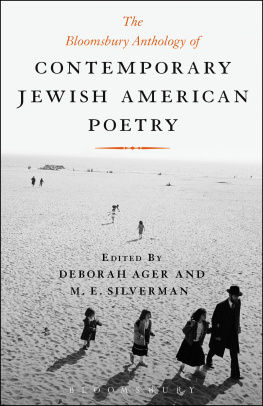BELONGING AND ESTRANGEMENT IN THE POETRY OF PHILIP LARKIN, R. S. THOMAS AND CHARLES CAUSLEY
Focusing on the significance of place, connection and relationship in three poets who are seldom considered in conjunction, Rory Waterman argues that Philip Larkin, R. S. Thomas and Charles Causley epitomize many of the emotional and societal shifts and mores of their age. Waterman looks at the foundations underpinning their poetry; the attempts of all three to forge a sense of belonging with or separateness from their readers; the poets varying responses to their geographical and cultural origins; the belonging and estrangement that inheres in relationships, including marriage; the forced estrangements of war; the antagonism between social belonging and a need for isolation; and, finally, the charged issues of faith and mortality in an increasingly secularized country.
For Martin Stannard, and Christopher and Joan Speake
Belonging and Estrangement in the Poetry of Philip Larkin, R. S. Thomas and Charles Causley
RORY WATERMAN
Nottingham Trent University, UK
ASHGATE
Rory Waterman 2014
All rights reserved. No part of this publication may be reproduced, stored in a retrieval system or transmitted in any form or by any means, electronic, mechanical, photocopying, recording or otherwise without the prior permission of the publisher.
Rory Waterman has asserted his right under the Copyright, Designs and Patents Act, 1988, to be identified as the author of this work.
Published by Ashgate Publishing Limited Wey Court East Union Road Farnham Surrey, GU9 7PT England | Ashgate Publishing Company 110 Cherry Street Suite 3-1 Burlington, VT 05401-3818 USA |
www.ashgate.com
British Library Cataloguing in Publication Data
A catalogue record for this book is available from the British Library
The Library of Congress has cataloged the printed edition as follows:
Waterman, Rory.
Belonging and Estrangement in the Poetry of Philip Larkin, R. S. Thomas and Charles Causley / by Rory Waterman.
pages cm
Includes index.
ISBN 978-1-4094-7087-8 (hardcover: alk. paper)ISBN 978-1-4094-7088-5 (ebook)ISBN 978-1-4724-0895-2 (epub)
1. Larkin, PhilipCriticism and interpretation. 2. Thomas, R. S. (Ronald Stuart), 19132000Criticism and interpretation. 3. Causley, Charles, 1917.Criticism and interpretation. 4. Alienation (Social psychology) in literature. 5. Identity (Psychology) in literature. I. Title.
PR6023.A66Z96 2014
821.914dc23
2013019347
ISBN 9781472408952 (hbk)
ISBN 9781409470885 (ebk PDF)
ISBN 9781472408952 (ebk ePUB)
Contents
Acknowledgments
First and foremost, I would like to thank Professor Martin Stannard at the University of Leicester for reading this study and making many valuable suggestions. I would also like to thank the Arts and Humanities Research Council for providing me with a full scholarship to undertake this research, and Professor Stephen Regan (Durham University) and Dr Mark Rawlinson (University of Leicester) for their attention and insights in the final stages.
I am also extremely grateful to the Estate of John Betjeman, the Society of Authors as the Literary Representative of the Estate of Philip Larkin, and the Estate of Charles Causley, for permissions to quote previously unpublished archival material in this book.
Parts of this study have been published, often in very different versions, in Explicator; About Larkin; Bonds and Borders: Critical Essays, ed. Dorette Sobolewski (Cambridge Scholars, 2011); Dark Horse; Semicerchio; Able Muse Review; Think Journal; Through the Granite Kingdom: Critical Essays on Charles Causley, ed. Michael Hanke (Wissenschaftlicher Verlag Trier, 2012). Other pieces that have fed directly into the development of the book have been published in Essays in Criticism; PN Review; The Poets Sourcebook, ed. Dawn Potter (Autumn House, 2012); The Times Literary Supplement. I am grateful to the editors who have published sections of this study, or works that have fed directly into its development: Professor James Booth, Gerry Cambridge, Gregory Dowling, Belinda Hakes, Professor Michael Hanke (who has been invaluable), Alan Jenkins, Alexander Pepple, Professor Seamus Perry, Professor Christopher Ricks, Professor Michael Schmidt, Dorette Sobolewski. I apologize sincerely if I have missed anyone in this list.
I would also like to thank the organizers of the following conferences, for which I put together papers related to this work: Lost in Translation, University of Leicester, October 2009; The Artist Under the Microscope, Durham University, November 2009; LINK Seminar, De Montfort University, Leicester, December 2009; Nightmare, UCL, March 2010; My Territory, University of Leicester, April 2010; Bonds and Borders, University of Glasgow, June 2010; British and Irish Poetry Since 1960, Queens University Belfast, September 2010; Poetry and Source, University of Plymouth, May 2012.
Many others deserve thanks, including Professor Ronald Tamplin; Fran Brearton and Patrick Villa at the War Poets Association; Professor Tony Brown and all involved with the R. S. Thomas Study Centre at the University of Bangor; the Special Collections staff at the University of Exeter; the Special Collections staff at the University at Buffalo, NY; the staff at the National Library of Wales, Aberystwyth; the Special Collections staff at the University of Hull; and the staff at the British Library both at St Pancras and Colindale, London. I would also like to thank the many people I met and talked to in my pursuit of the ghost of R. S. Thomas across north Wales, but especially David Walker in Manafon, Mrs J. Neal in Eglwys-fach and Reverend Jim Cotter in Aberdaron. Again, I apologize to anyone I have inadvertently missed out.
Last, but never least, Id like to thank my parents Andrew Waterman and Angela Waterman, and my wife Libby Peake, for their support and love, and my father and wife for their careful proofreading.
Introduction
I feel as though I should begin with a definition. The Oxford English Dictionary regards estrangement as: separation, withdrawal, alienation in feeling or affection. Such separation, withdrawal and alienation might of course either be willed or enforced by circumstance. A man kicked out of his home and a man who has chosen to leave his wife might both be said to be estranged from their previous lives, but the type of estrangement they experience is likely to differ substantially because the latter embraces it. This is an important distinction, and is often manifest in the ways the writers focused on in this study, Philip Larkin (192285), R. S. Thomas (19132000) and Charles Causley (19172003), responded to the same, or similar, phenomena such as relationships, isolation, geographical deracination. The sense in which most of us understand estrangement, of course, is alienation in feeling or affection. This has little application to Causley with regard to his Cornish background, though it is manifest in among other things his response to changes to his home environment. In Larkins work, there is frequently an axis or tension between belonging and estrangement as normally understood. With Thomas it is different again. In his earlier poems about Iago Prytherch and the like, Thomas is among rough hill-farming people, ministering to them, and does feel compassion yet is also not of them: is set apart by education, accent, being an Anglican priest in a country of Methodism, and by his personal fastidiousness; and a similar tension informs his later poetry about the nature of Wales, of love, and of God.
Next page

